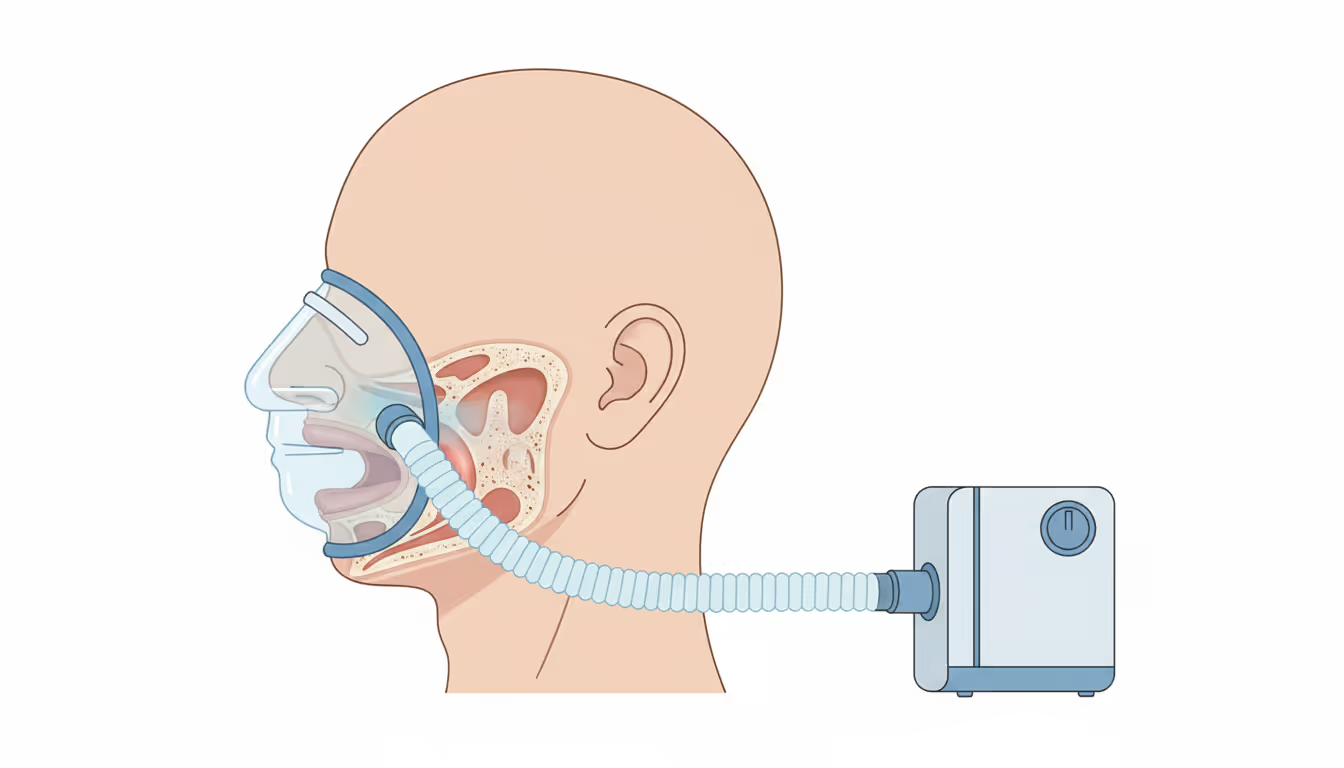
Continuous positive airway pressure (CPAP) is a highly effective treatment for individuals with moderate to severe obstructive sleep apnea. Those undergoing CPAP therapy wear a facial mask while sleeping, which is linked to a CPAP machine. This device delivers air at sufficient pressure to keep the airway open, thus ensuring normal breathing. The air pressure is consistently maintained during both inhalation and exhalation.Nasal CPAP is the leading choice for managing moderate to severe obstructive sleep apnea and is considered safe and effective, even for children. Patients often experience a reduction or resolution of daytime sleepiness, along with improvements in heart function and overall health.Initially, patients using CPAP should be observed in a sleep laboratory to determine the precise air pressure needed for their treatment. Adjusting to CPAP can be challenging during the first few nights, with some patients sleeping less and finding the mask to be uncomfortable, claustrophobic, or embarrassing. CPAP is not a cure; it requires nightly use throughout a patient's life. Those who do not adhere to the treatment will see a return of sleep apnea symptoms and associated issues.




